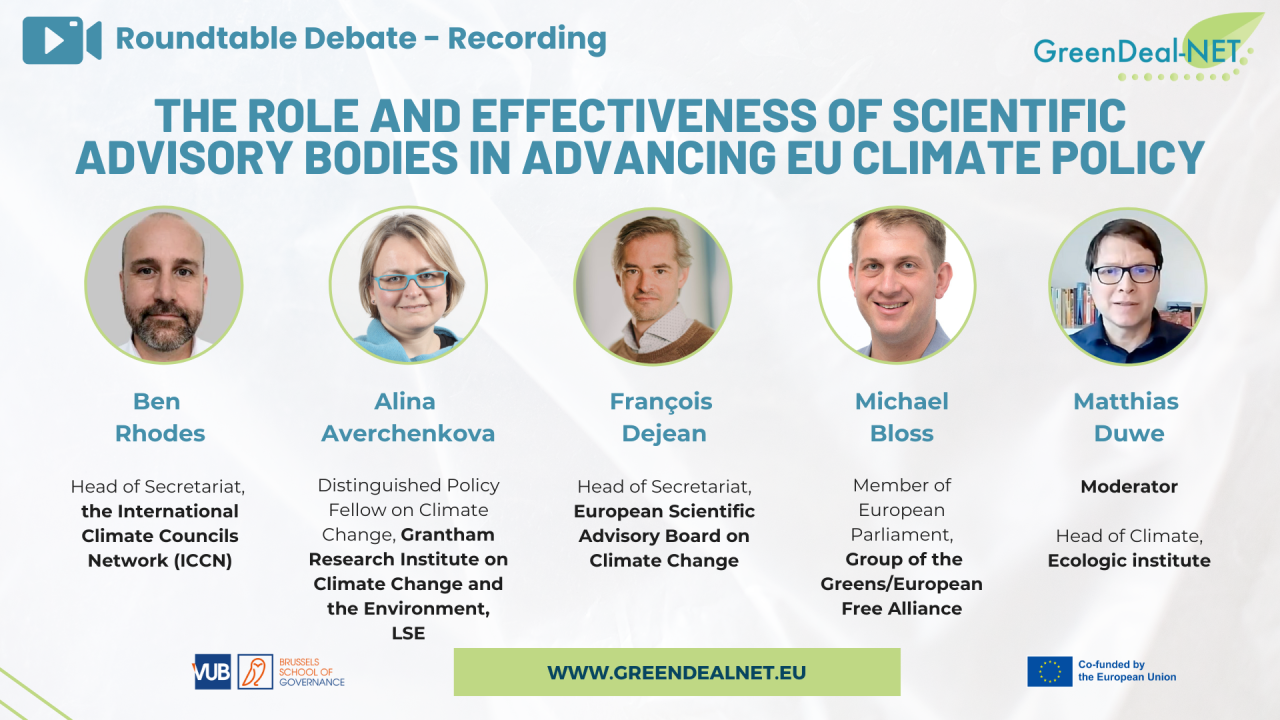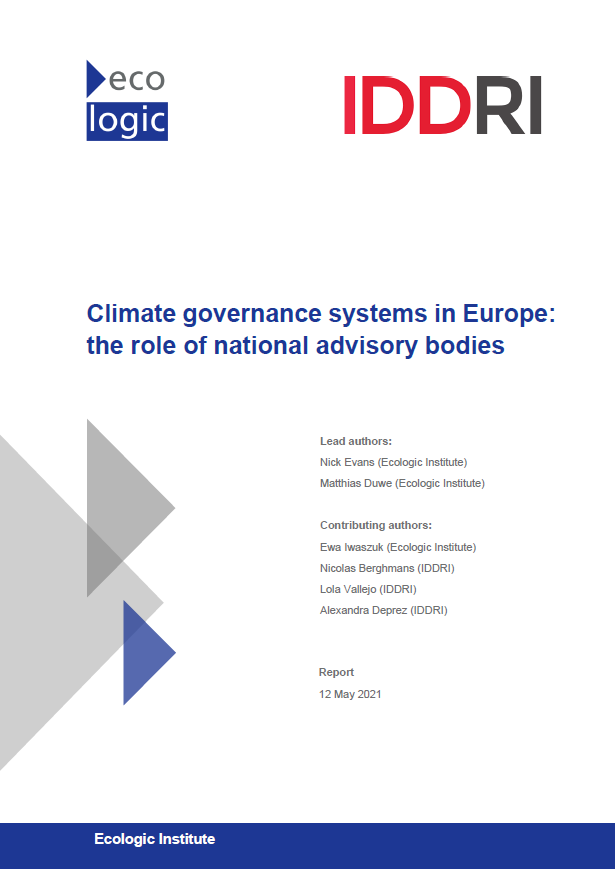
© Vrije Universiteit Brussel, 2025
The Role and Effectiveness of Scientific Advisory Bodies in Advancing EU Climate Policy
- Presentation
- Date
-
- Location
- online
- Chairing
How can scientific advisory bodies help shape and legitimise the political course? This central question was the focus of the roundtable debate ‘The Role and Effectiveness of Scientific Advisory Bodies in Advancing EU Climate Policy’, moderated by Matthias Duwe (Ecologic Institute). He led the discussion, which focussed on the function and impact of scientific climate advisory bodies in the European context.
Scientific expertise as the foundation of climate policy
In an increasingly complex and polarised policy environment, scientific advisory bodies provide essential services: they offer evidence-based and independent analysis, translate science into policy-relevant insights, and enhance transparency, accountability, and trust in decision-making. Case studies from the UK, Ireland and beyond showed how well-mandated councils can shape long-term climate targets and national strategies – especially when governments are legally obliged to respond.
Relevance in polarised political contexts
However, legitimacy is not a given. In a context of disinformation, populism and growing distrust, advisory bodies must actively maintain their credibility and neutrality. In discussions with Alina Averchenkova (Grantham Research Institute, LSE), François Dejean (European Scientific Advisory Board on Climate Change) and Ben Rhodes (International Climate Councils Network), it became clear that strategic communication – through plain-language reporting, social media, and citizen engagement – is key to building public trust.
EU-wide coordination and institutional development
Not all EU member states have scientific advisory councils in place. This creates gaps in climate governance across Europe. The panel identified potential in stronger coordination between national advisory bodies and the EU-level European Scientific Advisory Board on Climate Change (ESABCC) to improve coherence and fill regional gaps.
The debate also addressed institutional design. Panellists called for stronger legal mandates, greater visibility in policymaking, and more systematic mechanisms to ensure governments engage with expert advice. They also highlighted how advisory bodies can contribute politically neutral, science-based framing in sensitive areas like agriculture, carbon removals, and climate-induced migration.
Conclusion
The roundtable highlighted that scientific climate advisory bodies are key actors for credible, informed and forward-looking climate policymaking in Europe. Their effectiveness, however, depends on strong institutional anchoring, communication capacity, political independence – and better networking across the EU.




